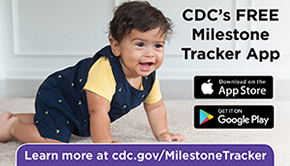Your child at 2 Years
Positive Parenting Tips
Following are some of the things you, as a parent, can do to help your toddler during this time:
- Set up a special time to read books with your toddler.
- Encourage your child to take part in pretend play.
- Play parade or follow the leader with your toddler.
- Help your child to explore things around her by taking her on a walk or wagon ride.
- Encourage your child to tell you his name and age.
- Teach your child simple songs like Itsy Bitsy Spider, or other cultural childhood rhymes.
- Give your child attention and praise when she follows instructions and shows positive behavior and limit attention for defiant behavior like tantrums. Teach your child acceptable ways to show that she’s upset.
Child Safety First
Because your child is moving around more, he will come across more dangers as well. Dangerous situations can happen quickly, so keep a close eye on your child. Here are a few tips to help keep your growing toddler safe:
- Do NOT leave your toddler near or around water (for example, bathtubs, pools, ponds, lakes, whirlpools, or the ocean) without someone watching her. Fence off backyard pools. Drowning is the leading cause of injury and death among this age group.
- Encourage your toddler to sit when eating and to chew his food thoroughly to prevent choking.
- Check toys often for loose or broken parts.
- Encourage your toddler not to put pencils or crayons in her mouth when coloring or drawing.
- Do NOT hold hot drinks while your child is sitting on your lap. Sudden movements can cause a spill and might result in your child’s being burned.
- Make sure that your child sits in the back seat and is buckled up properly in a car seat with a harness.
Healthy Bodies
- Talk with staff at your child care provider to see if they serve healthier foods and drinks, and if they limit television and other screen time.
- Your toddler might change what food she likes from day to day. It’s normal behavior, and it’s best not to make an issue of it. Encourage her to try new foods by offering her small bites to taste.
- Keep television sets out of your child’s bedroom. Limit screen time, including video and electronic games, to no more than 1 to 2 hours per day.
- Encourage free play as much as possible. It helps your toddler stay active and strong and helps him develop motor skills.
Developmental Milestones
How your child plays, learns, speaks, and acts offers important clues about your child’s development. Developmental milestones are things most children can do by a certain age.
If you have questions or concerns about how your child is learning, behaving or developing, dial 1-800-505-7000 to speak to a Care Coordinator at Child Development Infoline.
SOURCE: Centers for Disease Control and Prevention
Language & Communication
- Points to things or pictures when they are named
- Knows names of familiar people and body parts
- Says sentences with 2 to 4 words
- Follows simple instructions
- Repeats words overheard in conversation
- Points to things in a book
Cognitive
- Finds things even when hidden under two or three covers
- Begins to sort shapes and colors
- Completes sentences and rhymes in familiar books
- Plays simple make-believe games
- Builds towers of 4 or more blocks•Might use one hand more than the other•Follows two-step instructions such as “Pick up your shoes and put them in the closet.”
- Names items in a picture book such as a cat, bird, or dog
Movement & Physical Development
- Kicks a ball
- Stands on tiptoe
- Begins to run
- Climbs onto and down from furniture without help
- Walks up and down stairs holding on
- Throws ball overhand
- Makes or copies straight lines and circles
Related Programs

Related Resources
- AAP’s- Healthy Children
- Act Early Connecticut
- ADA – The Americans with Disabilities Act
- AFCAMP- Advocacy for Children with Disabilities
- Ages and Stages
- Assistive Technology
- Asthma
- Austism Spectrum Disorders (ASDs)
- Autism Services & Resources Connecticut
- Autism Speaks
- Birth to Five: Watch Me Thrive!
- Born Learning
- CDC Child Development Information
- Childhood Lead Poisoning
- Childhood Obesity
- Choose My Plate
- Coping with Violent/Traumatic Events
- CT Birth to Three Website
- CT Down Syndrome Congress
- CT Family Support Network
- CT Hands and Voices
- CT Parent Advocacy Center
- CT Parenting
- Divorcing Parents Parenting Education Programs (PEP)
- Ear Infections in Children
- Early Learning and Development Standards
- Early & Periodic Screening, Diagnosis & Treatment Program (EPSDT)
- Effects of Hearing Loss on Development
- Family Support Grant
- Guide By Your Side
- Head Lice
- How to Find Sign Language Instruction Classes in Connecticut
- Important Milestones
- Katie Beckett Waiver
- Kids Health
- Kids Mental Health Info
- Learn the Signs, Act Early
- M-CHAT
- Milestone Tracker Mobile App
- NEAT Marketplace
- PATH Parent-to-Parent Family Voices
- PBS Parents
- Sickle Cell Disease / Sickle Cell Trait
- Vroom
- We Can
- Zero to Three
See all Resources



